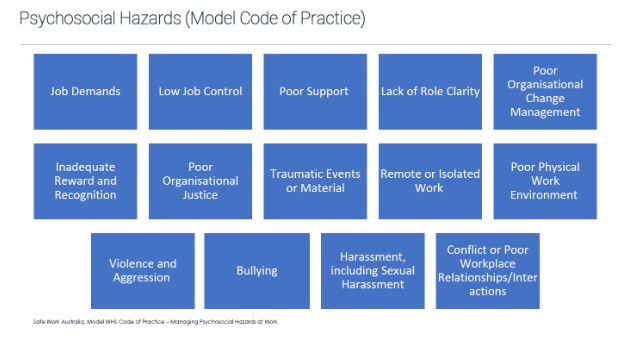We’ve come a long way in the understanding and treatment of mental health and have been discovering the best ways to support those living with different conditions.
But there’s always more we can do to continue to educate ourselves on each condition and how to best work with our clients.
Mental illness is a general term for a group of illnesses that may include symptoms that can affect a person’s thinking, perceptions, mood, or behaviour. Mental illness can make it difficult for someone to cope with work, relationships, and other demands. The relationship between stress and mental illness is complex, but it is known that stress can worsen an episode of mental illness. Most people can manage their mental illness with medication, counselling, or both. As part of our services, we account for and help support our client’s mental health by improving wellbeing and working alongside other health professionals to ensure a holistic care.
The World Health Organisation (2022 a) defines health as ‘… a state of complete physical, mental, and social well-being and not merely the absence of disease or infirmity’. When thinking about mental health this means that it is more than just the absence of mental disorders or disabilities. It is ‘a state of wellbeing in which an individual realises their own abilities, can cope with the normal stresses of life, can work productively and is able to make a contribution to her or his community.’ For humans to think, emote, interact with each other, earn a living, and to enjoy life we need to promote, protect ,and restore our mental health.
Despite having an improved understanding of the importance of mental health, mental health conditions are increasing globally (The World Health Organisation 2022b). Depression is now one of the leading causes of disability, and suicide the second leading cause of death among 15 – 29-year-olds. This is a sad statistic, so let’s review the different types and how at Plena we can help improve wellbeing.
Different Mental Health Conditions
Anxiety Disorders
Anxiety disorders are a group of mental health disorders that include generalised anxiety disorders, social phobias, specific phobias (for example, agoraphobia and claustrophobia), panic disorders, obsessive compulsive disorder (OCD), and post-traumatic stress disorder. Untreated, anxiety disorders can lead to significant impairment in people’s daily lives.
Obsessive Compulsive Disorder
Obsessive compulsive disorder (OCD) is an anxiety disorder. Obsessions are recurrent thoughts, images, or impulses that are intrusive and unwanted. Compulsions are time-consuming and distressing repetitive rituals. Treatments include cognitive behaviour therapy (CBT) and medications.
Bipolar Affective Disorder
Bipolar affective disorder is a type of mood disorder, previously referred to as ‘manic depression’. A person with bipolar disorder experiences episodes of mania (elation) and depression. The person may or may not experience psychotic symptoms. The exact cause is unknown, but a genetic predisposition has been clearly established. Environmental stressors can also trigger episodes.
Depression
Depression is a mood disorder characterised by lowering of mood, loss of interest and enjoyment, and reduced energy. It is more than just feeling sad. There are different types and symptoms and there are varying levels of severity and symptoms related to depression. Symptoms of depression can lead to increased risk of suicidal thoughts or behaviours.
Dissociation And Dissociative Disorders
Dissociation is a mental process where a person disconnects from their thoughts, feelings, memories, or sense of identity. Dissociative disorders include dissociative amnesia, dissociative fugue, depersonalisation disorder, and dissociative identity disorder.
Eating Disorders
Eating disorders include anorexia, bulimia nervosa, and other binge eating disorders. Eating disorders affect all genders and can have serious psychological and physical consequences.
Paranoia
Paranoia is the irrational and persistent feeling that people are ‘out to get you’. Paranoia may be a symptom of conditions including paranoid personality disorder, delusional (paranoid) disorder and schizophrenia. Treatment for paranoia include medications and psychological support.
Post-Traumatic Stress Disorder
Post-traumatic stress disorder (PTSD) is a mental health condition that can develop as a response to people who have experienced any traumatic event. This can be a car or other serious accident, physical or sexual assault, war-related events or torture, or natural disasters such as bushfires or floods.
Psychosis
People affected by psychosis can experience delusions, hallucinations and confused thinking. Psychosis can occur in a number of mental illnesses, including drug-induced psychosis, schizophrenia, and mood disorders. Medication and psychological support can relieve, or even eliminate, psychotic symptoms.
Schizophrenia
Schizophrenia is a complex psychotic disorder characterised by disruptions to thinking and emotions, and a distorted perception of reality. Symptoms of schizophrenia vary widely but may include hallucinations, delusions, thought disorder, social withdrawal, lack of motivation, and impaired thinking and memory. People with schizophrenia have a high risk of suicide. Schizophrenia is not a split personality.
What We Can Do For Ourselves And Our Clients
We feel passionately about supporting our clients with all holistic health care. The best way to a support high quality of life is to improve wellbeing for our clients. But what is wellbeing?
Wellbeing is a way of improving our lives, of staying resilient, building social support and self-efficacy, and helping us to cope with difficult times.
It is a positive outcome that is meaningful for people and informs one that people perceive they are thriving in many areas of their lives. It combines several elements, including considering how we:
- Cultivate meaning and good relationships
- Use our strengths
- Contribute to a ‘greater’ cause
- Find pleasure in losing ourselves in things we find challenging and enjoyable
It is about purpose and meaning, of being a part of something bigger than yourself. It explores the satisfaction we find in our social connections and when we accomplish things.
Having a strong sense of wellbeing contributes to good mental health. It helps to protect us from feelings of hopelessness and depression, offering protection for our mental health. Mental health is not merely the absence of mental illness rather it is a state of overall wellbeing.
How is wellbeing measured?
Wellbeing is measured through self-reporting as it is a subjective state of being. There are many instruments used to measure wellbeing which are used for different purposes i.e., for public policy purposes, for clinical outcomes, population health outcomes, and more.
In general, wellbeing is related to:
- Good health
- Positive social relationships
- Availability and access to basic resources i.e., housing, income etc.
Looking after mental health and wellbeing
At Plena, we help our clients in a number of ways. Whether that be constructing strategies to help with routines, accessing services, or encouraging mindfulness and positive interactions.
- Community Integration
Occupational therapists, in particular, focus on helping individuals reintegrate into their communities after experiencing mental health challenges, this can include assisting with social participation.
- Comprehensive Care
Allied health professionals often work in multidisciplinary teams with medical doctors, psychiatrists, and other mental health specialists to provide holistic care. This collaborative approach ensures that both physical and mental health needs are addressed simultaneously.
- Health Education
Allied health professionals can educate individuals about the relationship between lifestyle choices, physical health, and mental health. This knowledge can empower individuals to make informed decisions about their well-being.
- Nutrition
Eating well is important as it provides essential nutrients and energy to get through the day; keeps your immune system strong for fighting infections; helps promote better sleep; improves concentration; and can reduce stress. Plena Dietitians can provide assessments and tailored plans to ensure they are receiving all the nutrition they need.
- Emotional Support
Allied health professionals, such as occupational therapists and speech therapists, often work closely with clients, providing a safe and supportive environment for individuals to express their emotions, build self-esteem, and improve their overall well-being.
- Implementing self-care strategies
Taking time to take good care of yourself and engage in a range of self-care activities is essential to protect your mental wellbeing. We can assist clients in engaging in healthy activities they enjoy and find relaxing. We can provide transportation, connect with local groups, or provide tools and assistance in completing favourite hobbies.
We are passionate about helping our clients and ensuring they have access to all the support they need. If you think you or a loved one could benefit from our services call us on 136 033, or learn more about what we offer on our website.
If you need someone to talk to:
Lifeline – 13 11 14
Beyond Blue – 1300 224 636
References
World Health Organisation 2022a, ‘Mental health: strengthening our response’, World Health Organisation website,
https://www.who.int/news-room/fact-sheets/detail/mental-health-strengthening-our-response
World Health Organisation 2022b, ‘Mental health’, World Health Organisation website,
https://www.who.int/health-topics/mental-health#tab=tab_2



